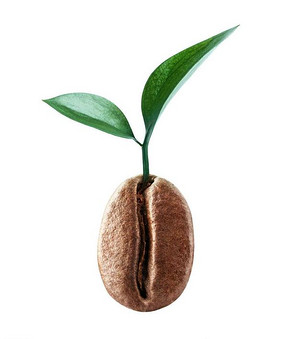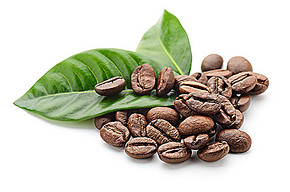Introduction of Brazilian coffee Sinio cafezinho
Pay attention to coffee reviews (Weixin Official Accounts vdailycom ) and find a beautiful cafe to open your own shop
Brazil is the world's largest coffee producer. Coffee originated in Arabia and was introduced to Europe in the 18th century. Later, the French deliberately shipped coffee seedlings to Guyane française, and finally introduced them to Brazil, where they were finally carried forward. Don't forget Brazil's famous coffee, buy a few bottles to give back to people will be popular. Supermarkets and bakeries sell roasted and ground coffee, vacuum-packed products that keep it fresh for a long time, or coffee in paper bags that can be bought at airports.
"Coffee Sinho"(cafezinho) is Brazil's favorite cup of strong black coffee, in Brazil, please drink a cup of coffee Sinho is a habit, but also an important courtesy of hospitality, just like the Chinese tea. Brazil is the world's largest coffee producer, known as the "coffee kingdom" said. It is said that coffee was first discovered by an old shepherd in the Kafa region of Ethiopia. As his sheep were particularly excited and active after eating a red berry in the bush, he was surprised and ate a few, and he was excited to dance. Coffee was born from then on.

The French transplanted the plant first to Guyane française and then to other places. It was not until the 18th century that Brazil, eager to obtain coffee seeds, managed to obtain some mature coffee beans and five coffee saplings from Guyana. It was the reproduction of these seeds and seedlings that made Brazil's dream of "coffee kingdom" come true. At that time, in Europe, drinking coffee had developed from a unique enjoyment of the aristocracy to the fashion of the common people, and the market demand increased greatly. Several Brazilian states have soils and climates that are particularly suitable for coffee cultivation, so coffee cultivation has grown rapidly and expanded to the southwest.
According to statistics, between 1820 and 1840, Brazil's coffee production increased by 206%, much higher than the growth of coffee production in other parts of the world. For example, between 1825 and 1850, the world coffee production increased threefold, but Brazil increased fivefold, becoming the world's first coffee producer and exporter. Coffee cultivation has also become a new pillar of Brazil's economy. Until 1960, coffee exports accounted for 56.2% of its foreign exchange earnings, and Brazil experienced great economic development since then. In 1980, coffee exports still accounted for a significant share of 13.8% of total exports. No wonder brazilians call it "green gold." When we were living in Brazil, we were invited to spend the weekend on a coffee plantation. The owner accompanied us into the green coffee garden, a glance, coffee trees horizontal rows, vertical rows, uniform, a bit like Chinese tea garden, but coffee trees taller than tea trees, can grow to about 3 meters, oval leaves were opposite, leaf axils full of green fruit, the owner said, until May-June, mature fruit will become red, also to harvest coffee beans season. The coffee processing process, which requires a high degree of expertise, was followed.
At last we were cordially invited into the coffee-room of the estate, where a Negro woman brewed a cup of coffee for each of us in the traditional way from hot freshly ground coffee beans, but it was rich in aroma and tasted carefully. It tasted better than ordinary instant coffee. After drinking it, it still had a mouthful of fragrance. It was the most delicious coffee we had ever drunk.
Brazilians love coffee and drink coffee well. Coffee with hot milk is a traditional breakfast drink throughout Brazil, and Brazilians call breakfast "morning coffee"(cafedamanha). They drink coffee before going to work, at meetings, and often stand in front of sidewalk cafes for a drink while walking down the street. Coffee is an indispensable source of energy for most Brazilians. Small black coffee, dark color, strong taste, mellow and delicious, the best to add a little more sugar, as the Brazilian folk song sings: "Coffee must be as black as the devil, as hot as hell, as pure as angels, as sweet as love." When you arrive in Brazil, don't forget to taste the fragrant and delicious "Café Sinho"!
Important Notice :
前街咖啡 FrontStreet Coffee has moved to new addredd:
FrontStreet Coffee Address: 315,Donghua East Road,GuangZhou
Tel:020 38364473
- Prev

An introduction to the History of Coffee in Seardang Manor, Brazil
In San Lorenzo, a city famous for its mineral water in the southeastern state of Minas Gerais, there is a coffee shop on the pedestrian street in the center of the city. Modern decoration and equipment stand out in the old city, with local residents among the customers. there are many admiring tourists. Most people drink coffee here without sugar. Theresa, a 60-year-old local lady, says the coffee here is fine.
- Next

Introduction to the cultivation of Brazilian Bird shit Coffee in Historical Taste and Flavor producing areas
Following Cafe Review (Wechat official account vdailycom) found that many people have heard of Kopi Luwak and found that Beautiful Cafe has opened its own shop, thinking it is the most expensive coffee, but it is not. Kopi Luwak is grown in many parts of Southeast Asia, including Yunnan in China. The rarer animal gastrointestinal fermented coffee is bird shit coffee, which is currently only grown on Camocim Estate farms in Brazil.
Related
- Detailed explanation of Jadeite planting Land in Panamanian Jadeite Manor introduction to the grading system of Jadeite competitive bidding, Red bid, Green bid and Rose Summer
- Story of Coffee planting in Brenka region of Costa Rica Stonehenge Manor anaerobic heavy honey treatment of flavor mouth
- What's on the barrel of Blue Mountain Coffee beans?
- Can American coffee also pull flowers? How to use hot American style to pull out a good-looking pattern?
- Can you make a cold extract with coffee beans? What is the right proportion for cold-extracted coffee formula?
- Indonesian PWN Gold Mandrine Coffee Origin Features Flavor How to Chong? Mandolin coffee is American.
- A brief introduction to the flavor characteristics of Brazilian yellow bourbon coffee beans
- What is the effect of different water quality on the flavor of cold-extracted coffee? What kind of water is best for brewing coffee?
- Why do you think of Rose Summer whenever you mention Panamanian coffee?
- Introduction to the characteristics of authentic blue mountain coffee bean producing areas? What is the CIB Coffee Authority in Jamaica?

